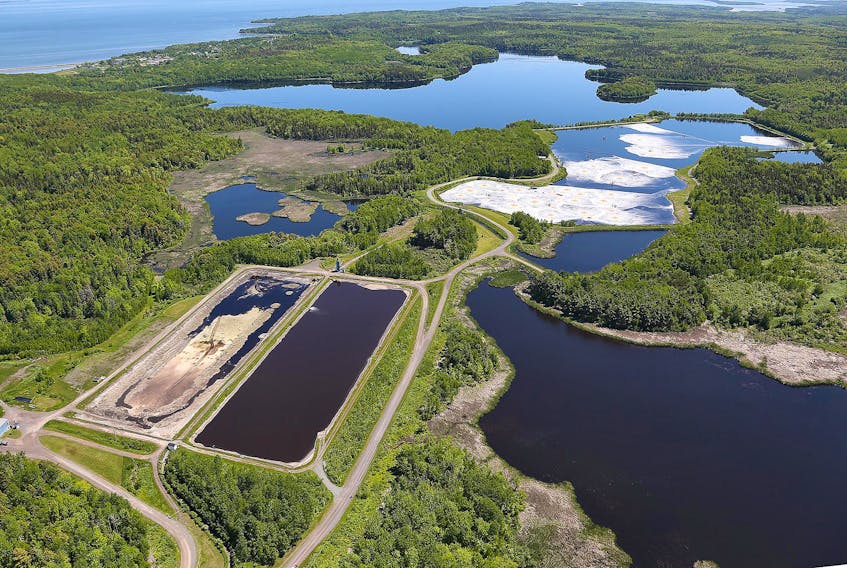NEW GLASGOW - A Merigomish fisherman denounced a possible effluent treatment plant at Northern Pulp as a “cancer factory,” after a meeting with local politicians Sunday.
Joey Savoie, who sails out of Lismore, said that fishing in the Northumberland Strait is already subject to heavy restrictions such as avoiding one zone contaminated with salt, a natural material.
But the proposed treatment plant may add to his woes by pumping treated effluent into the Northumberland, Strait after the current wastewater lagoon at Boat Harbour is shut down in three years.
“It’s a lot of livelihoods on the line. It’s not safe. It’s a cancer factory,” said Savoie.
A delegation of local fishermen and First Nations discussed these concerns and others with Nova Scotia Environment Minister Iain Rankin, Central Nova MP Sean Fraser and Pictou West MLA Karla MacFarlane.
Northern Pulp said in a statement last week that wastewater would undergo a new activated sludge treatment process including aeration, clarification and recycle stages in a new plant on its mill site. Only then will effluent be released into the sea.
This process differs from the current aerated stabilization basis process, using the Boat Harbour lagoon to store wastewater that is contaminated with toxic chemicals such as zinc, mercury and cadmium.
Rankin also re-stated the province’s commitment to closing Boat Harbour down by 2020 in discussions with Pictou Landing First Nation during the meeting.
But Savoie was not convinced.
“When you put your stamp on this and put this pipeline down, are you willing to drink what’s coming out of the end of this pipe?” he asked.
Fraser said the federal government could not yet conduct an official review of the matter, as nothing has yet been formally tabled by the mill owners and he has not yet seen any proposal.
“Right now it’s going to be incumbent on the company who wants to build the new effluent treatment facility to actually commence the process by tabling the proposal,” said Fraser.
He is also pushing for the federal government to co-operate during the upcoming clean-up of Boat Harbour, whose pollutants have impacted both Pictou Landing and the Northumberland Strait.
One potential sticking point between Ottawa and Halifax are different environmental standards regarding what can and cannot go into the strait, rather than Boat Harbour itself.
“If there’s anything that’s impacting federally-regulated waterways, I would hope that the federal government, with my advocacy, would ensure that the companies that are treating effluents meet the standards required by law,” said Fraser.
Likewise, any operations in waters under provincial jurisdiction would have to meet Nova Scotia’s own environmental standards.
Either way, Fraser said that both protecting fishermen and respecting environmental laws was key, using the best scientific research available to craft the best approach.
Presently, the province is leading the process regarding Boat Harbour, in collaboration with the federal Department of Fisheries and Oceans and Environment and Climate Change Canada.
After a proposal is formally tabled, the federal government via the DFO could become more heavily involved, if for example the plans pose a risk to fish habitat or health.
“Today they are co-operating with the provincially-led process,” said Fraser of Ottawa’s involvement.
For MacFarlane, a good next step would be for fishermen to meet with Northern Pulp, which she said would likely happen soon.
Fishermen also wanted to explore other options, such as processing waste on land instead of pumping it into the sea.
“They flat out do not want the pipe,” said MacFarlane.
She added that fishing was a $3 billion industry in Canada, of which Nova Scotia alone contributes $1.3 billion.
Fishing is also the province’s number-one export, according to MacFarlane.
“Why are we taking any type of risk at all to put our fishing industry in jeopardy?” said MacFarlane.









